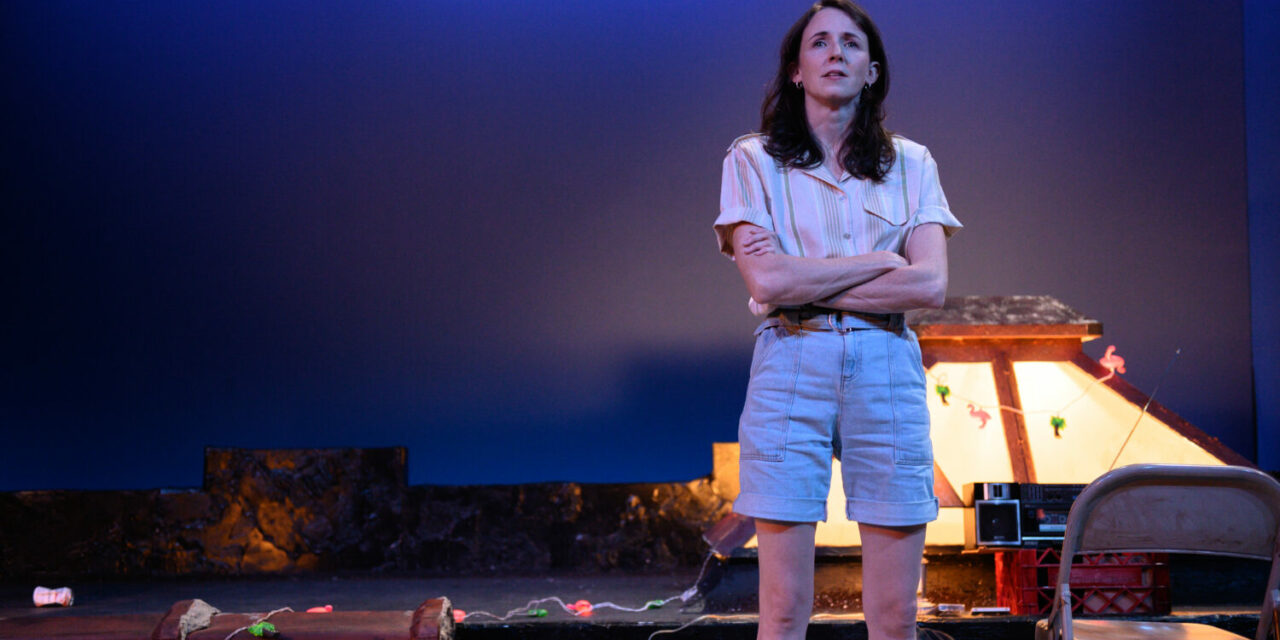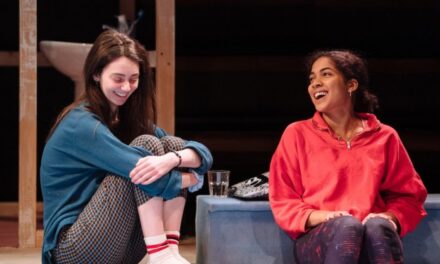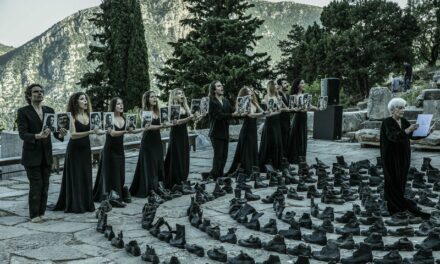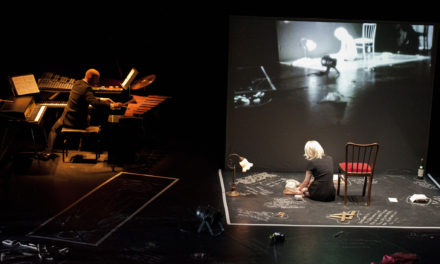It’s June 18, 1983. You’re a waitress in St. Louis who’s all but given up her dreams of achieving renown, or at least impact, as a poet. You’re in an unsatisfying relationship and a stimulating but annoying best friendship. And you’re pinning all your hopes, or maybe displacing them, on your new hero, Sally Ride.
This is the premise of Liza Birkenmeier’s banger of a new play, Dr. Ride’s American Beach House, at Ars Nova’s Greenwich House, where Birkenmeier is the Tow Playwright-in-Residence. Katie Brook directs the all-female cast, a hilarious ensemble composed of Kristen Sieh as Harriet, Erin Markey as her best friend Matilda, Susan Blommaert as her landlady Norma and Marga Gomez as Matilda’s friend Meg, who pummels in as a semi-invited guest. I don’t know quite how to reconcile what I’m about to say, but every single cast member stole the show. Harriet, Matilda and Meg are gathered on Harriet’s rooftop to listen to the radio broadcast of the Challenger launch, and drink beer and spy on the neighbors with binoculars. Occasionally Norma comes up to complain and gently insult them.
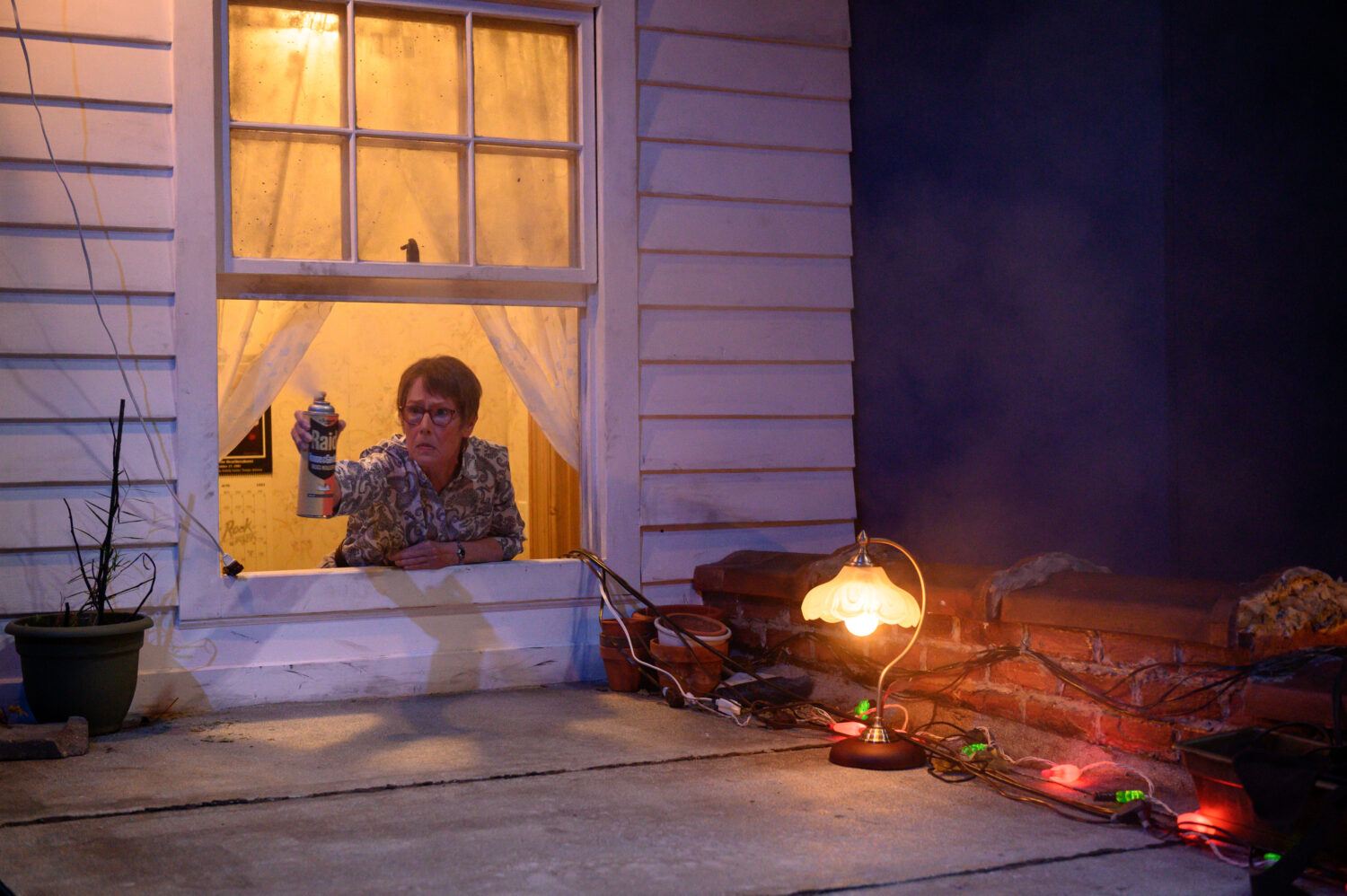
Susan Blommaert as Norma. Photo by Ben Arons.
Everything about the design of the play was simple yet detailed, and very effective. The set, designed by Kimie Nishikawa, is stunning: a gently sloping roof on an old building, built for and maintained in honor of the fictional (I think?) poet Ivan Brock. There’s a window at crouch-level for entrances and exits, two plastic lawn chairs and the chimney serve as seating. Oona Curtis’ marvelous lighting design shows the deepening night illuminated by Christmas lights and portable lamps. The radio functions almost like a fifth character, providing news commentary on the launch as well as mood music. My singular critique of the design, in fact of the entire show, is that a half-gallon of ice cream is brought out early on and never returned inside to be replaced in the freezer. Maybe it’s my inner Jewish mother speaking, or my inner Norma, but it drove me nuts seeing it left there to melt.
A rooftop in St. Louis – what a perfect metaphor for compromise. As if everything terrestrial and mundane can be manageable if you can at least glimpse the night sky, and fantasize about an escape. Harriet and Matilda are the founders and sole members of the Two Serious Ladies Book Club, named after the novel by Jane Bowles. They don’t read, it’s just what they call it when they hang out on the roof failing to abide by their one rule: don’t talk about men. Norma and Meg, who do live by that rule, seem to offer two possible trajectories: close up and grow increasingly irritated, or be expansive, generous, truthful and kind to the people, or at least the women, who enter your orbit.
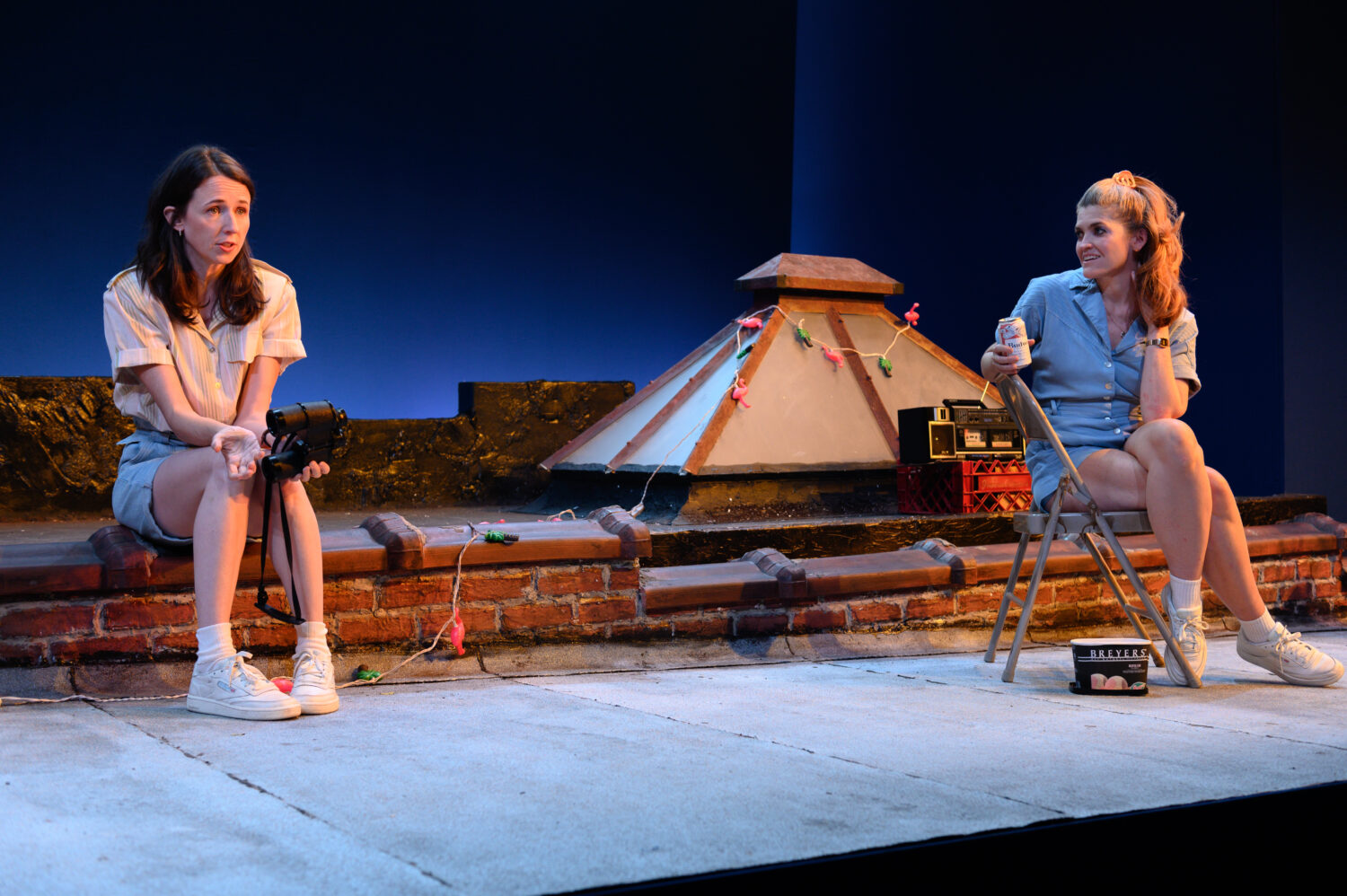
Kristen Sieh as Harriet and Erin Markey as Matilda. Photo by Ben Arons.
Markey is dazzling as Matilda, a character whose self-love is obnoxious but not misguided. (“I can’t help it if I’m a Leo,” she deadpanned, to the delight of the ebullient packed house.) If you’re lucky, you have an obnoxious friend like Matilda. She reminds me of a woman I used to know in Texas whose best friend described her as “a bully and a tyrant, it’s her way or the highway but her way’s usually awesome.” Whereas Harriet is buttoned up, Matilda is sensual and effusive; her love language is straddling. And whereas Harriet describes sex with her boyfriend as “disgusting,” there’s a hint of eroticism in her intimacy with Matilda, as there often is in female friendships. Then Meg comes in, butch and powerful in her Motörhead t-shirt, partially to save the day but also to do what the Russian formalist critic Viktor Shklovsky termed “laying bare the device,” and claim Sally Ride as a gay icon.

Sieh with Marga Gomez as Meg. Photo by Ben Arons.
Dr. Ride’s American Beach House is a rare wonder: tender, honest and ambiguous. In ninety minutes it delivers more laughs – not just clever zingers but full, head thrown back guffaws – than I’ve ever experienced in the theatre. But beyond that, it’s a portrait of four women, propelled by their feelings and experiences. The emotional core of the play oozes out like, as Matilda says in the very beginning, “a leaky Hot Pocket.” On a rooftop in St. Louis, one night in June, 1983, four women achieve liftoff.
This post was written by the author in their personal capacity.The opinions expressed in this article are the author’s own and do not reflect the view of The Theatre Times, their staff or collaborators.
This post was written by Abigail Weil.
The views expressed here belong to the author and do not necessarily reflect our views and opinions.

